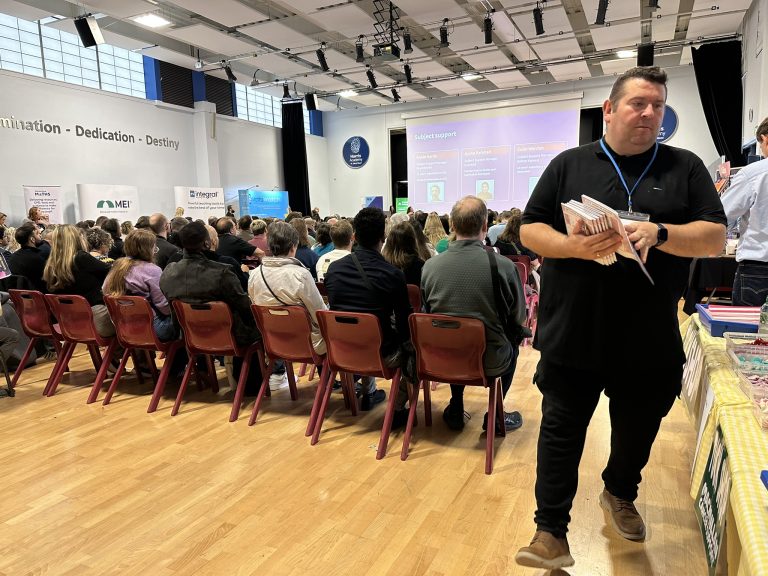Learning mathematics is not a race, no such thing as “being left behind”
In the bizarre stillness of May 2020 when the streets were silent, schools were closed, and ‘zooming’ was all the rage, I put my thinking cap on and cooked up something I thought could help.
I combined my livestreaming chops from music with deep experience in online tutoring, alongside a community of teachers I’d met through the La Salle maths education conferences. And from that hodgepodge, #MathsChatLive was born.
In this #MathsChatLive panel from May 2020, she challenges the panic around “lost learning” and reminds us:
“Learning mathematics is not a race.”
I had the great privilege of hosting panels of mathematics educators and thinkers. We livestreamed on Twitter and YouTube, taking questions in real time, part conversation, part lifeline. It was the first of its kind: an improvised digital campfire lit to keep the spirit of learning alive.
One episode has stayed with me ever since.
There were five of us on the panel that day: Mark McCourt, Daniel Pearcy, Emma McCrea, Anne Watson, and me.
As the livestream drew to a close, Anne was clearly weary of the repeated “lost learning” questions. Towards the end of the stream she said something that sliced through the noise.
“The phrase ‘children being left behind’ is meaningless in terms of learning mathematics.”
It hit like lightning. We all fell quiet as she spoke ; with gravitas, clarity, and fierce compassion.
She went on to say:
“For most school children — maybe not the 15- to 16-year-olds who are in that position — but for most school children, the most important thing to remember is that learning mathematics is not a race.
The way the curriculum might be set out in your school, year by year, is not a thing. It is not a thing. It is something that someone has invented to try and control and organise children’s learning — and teachers’ teaching — and it is not a real thing.
There is no real reason why everybody in Year 7 should be learning about adding fractions. There is no real reason for that at all. It is not a race.
So children shouldn’t be made to feel that they have somehow got behind. The phrase ‘children being left behind’ is meaningless in terms of learning mathematics.
They know the mathematics that they already know.
There is some mathematics that they don’t know.
There is some mathematics that they might have experienced in a fairly fractured and ad hoc fashion while they were not in school.
And it may be that they have done no formal maths at all while they were not in school.What is much more important is the relationship, and the care — the care for learning — that you start off with.
And no sense of racing.And if anybody tries to make you get these children to such-and-such a state by such-and-such a time, then you ought to resist and say:
“No, actually — first of all, I’m going to find out how these children feel.””
I didn’t even know who Anne Watson was before that panel. But in that moment, I realised: here was someone with decades of lived wisdom in the teaching and learning of mathematics.
Learning Is Not Linear
At the time, there was panic and anxiety about “learning loss.” Politicians, education bodies, even parents were scrambling to make up for “lost time.” Phrases like accelerated learning, catch-up funding, and left behind were everywhere.
But I kept asking: Behind what?
Behind whom?
According to which clock?
In my tutoring work, especially online, with students around the world, I often have to gently challenge this way of thinking. Parents come to me worried. Their child has “fallen behind.” They’re anxious. They want someone to fix it. They want to “catch up.”
But:
Learning is not linear.
It is not timed.
And it is not a race.
There is no cosmic stopwatch counting down.
Everyone is on their own learning journey.
Why I Only Work Long-Term Now
In the years since that livestream, my tutoring philosophy has decisively changed.
I stopped taking on short-term students. No more exam-only prep. I stopped tutoring for 11+, GCSEs, and A-levels. That decision cost me clients as I got fewer gigs. But it aligned me with parents who value the long game, those who understand that learning takes time. And that is the most satisfying, most honest work I’ve ever done.
This live stream was a pivotal moment in my teaching journey and I always go back to it to be reminded of the this fundamental truth of education.
There is no such thing as being left behind in mathematics.
There is only the place a child is in today —
and the trust it takes to walk forward from there, one step at a time.

